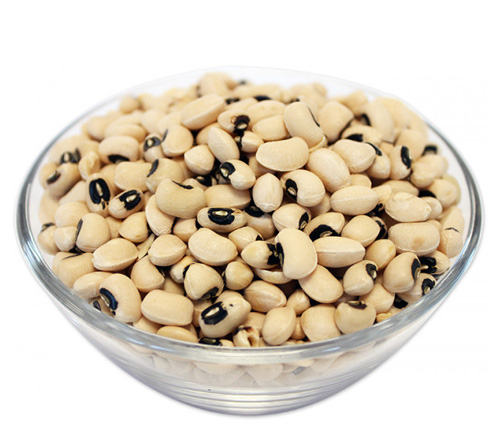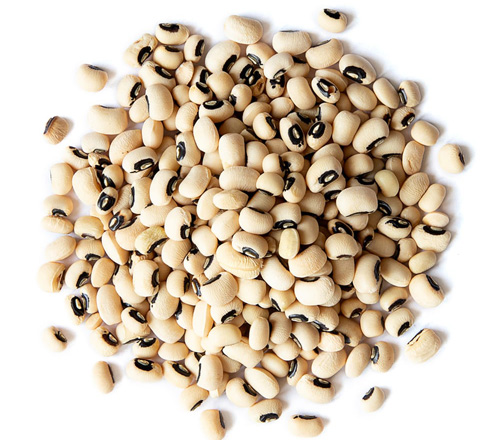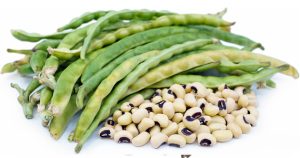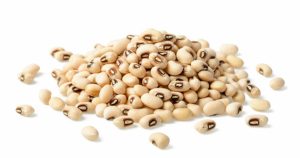



Black-eyed peas, known as cowpeas, are a common legume cultivated around the globe.
Despite their name, black-eyed peas are not peas but rather a type of bean.
They’re generally very pale and feature a large black, brown, or red spot that resembles an eye.
Black-eyed peas have a strong, savoury flavour and are often considered a staple in both Indian and traditional Southern cuisine.
This article reviews the nutrition facts, benefits, and uses of black-eyed peas.
Nutritional profile
Black-eyed peas are incredibly nutrient-dense, packing plenty of fibre and protein into each serving.
They’re also a good source of several important micronutrients, including folate, copper, thiamine, and iron.
Availability:In Stock
One cup (170 grams) of cooked black-eyed peas contains the following nutrients (1Trusted Source):
Calories: 194
Protein: 13 grams
Fat: 0.9 grams
Carbs: 35 grams
Fibre: 11 grams
Folate: 88% of the DV
Copper: 50% of the DV
Thiamine: 28% of the DV
Iron: 23% of the DV
Phosphorus: 21% of the DV
Magnesium: 21% of the DV
Zinc: 20% of the DV
Potassium: 10% of the DV
Vitamin B6: 10% of the DV
Selenium: 8% of the DV
Riboflavin: 7% of the DV
In addition to the nutrients listed above, black-eyed peas are high in polyphenols, which are compounds that act as antioxidants in the body to prevent cell damage and protect against disease (2Trusted Source).


Potential benefits
Black-eyed peas have been associated with several powerful health benefits.
Support weight loss
Due to their content of protein and soluble fibre, adding black-eyed peas to your diet is a great way to boost weight loss.
Protein, in particular, has been shown to reduce levels of ghrelin, a hormone that’s responsible for stimulating feelings of hunger (3Trusted Source, 4Trusted Source).
Meanwhile, soluble fibre is a type of fibre that forms a gel-like consistency and moves through your digestive tract slowly to help keep you feeling full between meals (5Trusted Source).
According to one study in 1,475 people, those who ate beans regularly had a 23% lower risk of increased belly fat and a 22% lower risk of obesity, compared with non-consumers (6Trusted Source).
Another review of 21 studies found that including pulses, such as black-eyed peas, in your diet could be an effective weight-loss strategy and may help reduce body fat percentage.